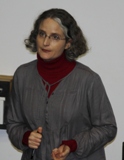
Let me begin with an informative snippet before engaging, ever so warily, with a lady whose name could be a pole dancer's sobriquet but who is in fact one of the brighter luminaries in the Rhodes University firmament.
This is what Professor John Simpson, director of UCT's Unilever Institute of Marketing, said in Johannesburg this week: "Bigger and more powerful than ever before, the black middle class has lost none of its lustre and has doubled in size from 1.7 million South Africans in 2003 to 4.2 million today."
Aggressive growth had been forecast by the institute but "we could never have predicted that black middle class spending would have skyrocketed to a staggering R420-billion per annum substantially outstripping white middle class spending power", he said. Even more remarkable is that the 4.2-million - made up of urban dwellers, over half with a tertiary education qualification and 90% of them fluent in English - excludes middle-class coloureds and Indians.
They number 720 000, and 505 000 respectively, making over 5.4 million blacks in total. By contrast the number of middle-class whites is static, fractionally up from 2.8 million a decade ago. Simpson characterised this group as aging and pessimistic. It is not irrelevant but it soon might be.
Only in the age categories above 45 years do whites still predominate. In the youthful segments they are outnumbered, outgunned and soon to be pensioned off. They pose no threat to anyone. This is the revolution reduced to bare statistics and, frankly, it's excellent news.
The end of a long and painful economic and social transition is in sight, one stoically borne by whites among whom untold families have been fractured by emigration. In saying this I will probably offend Samantha Vice, senior lecturer in philosophy at Rhodes, who last week urged whites to be silent about political problems because collectively they should be feeling shame for the injustices caused by apartheid.
Vice was a panellist in a discussion on "whiteness". Steve Biko, who used blackness as a rallying point for action, might have chuckled at that. He would have loved the irony of a downtrodden group being urged to shut up.
I don't know what led Vice to her view and readily concede it to be more complex and firmly based than represented here. But silence in the face of change? I don't think so. We are not China, North Korea or Russia, where dissent is forbidden or risky. Surely our philosophic heritage, which underpins the rights enshrined in our constitution, is deeper than that.
Perhaps the revolution which Simpson describes hasn't reached Rhodes yet. Only 8% of the African middle class is located in the Eastern Cape, compared to 46% in Gauteng and 18% in KZN. In Gauteng debates about the concept of "whiteness" in which the shame or guilt are prescribed emotions for some participants might already be considered quaint.
On the other hand there's an election looming. Soon it will be all hands to the pumps to clear the bilges of the leaky ship of state. Racial politics may be on the way out but there might be time for a last hurrah.
Source: WEEKEND POST (Border)
